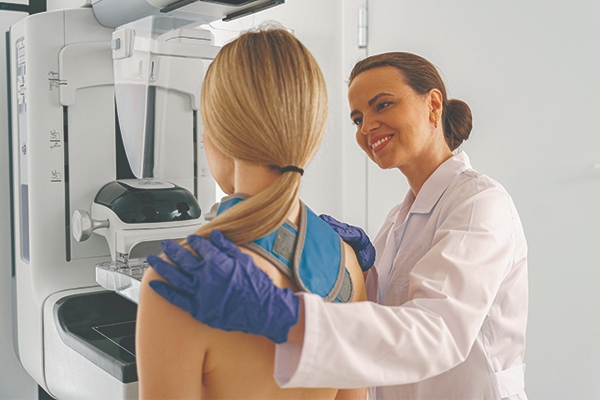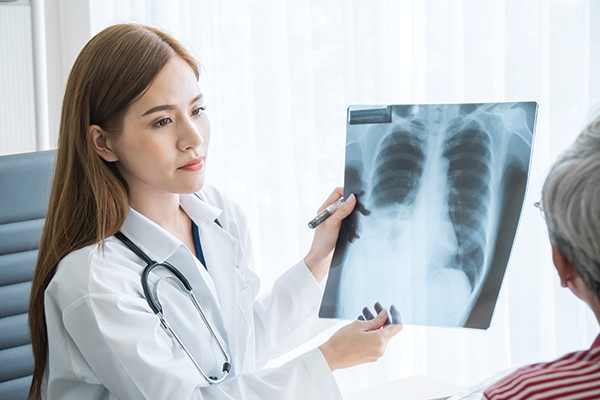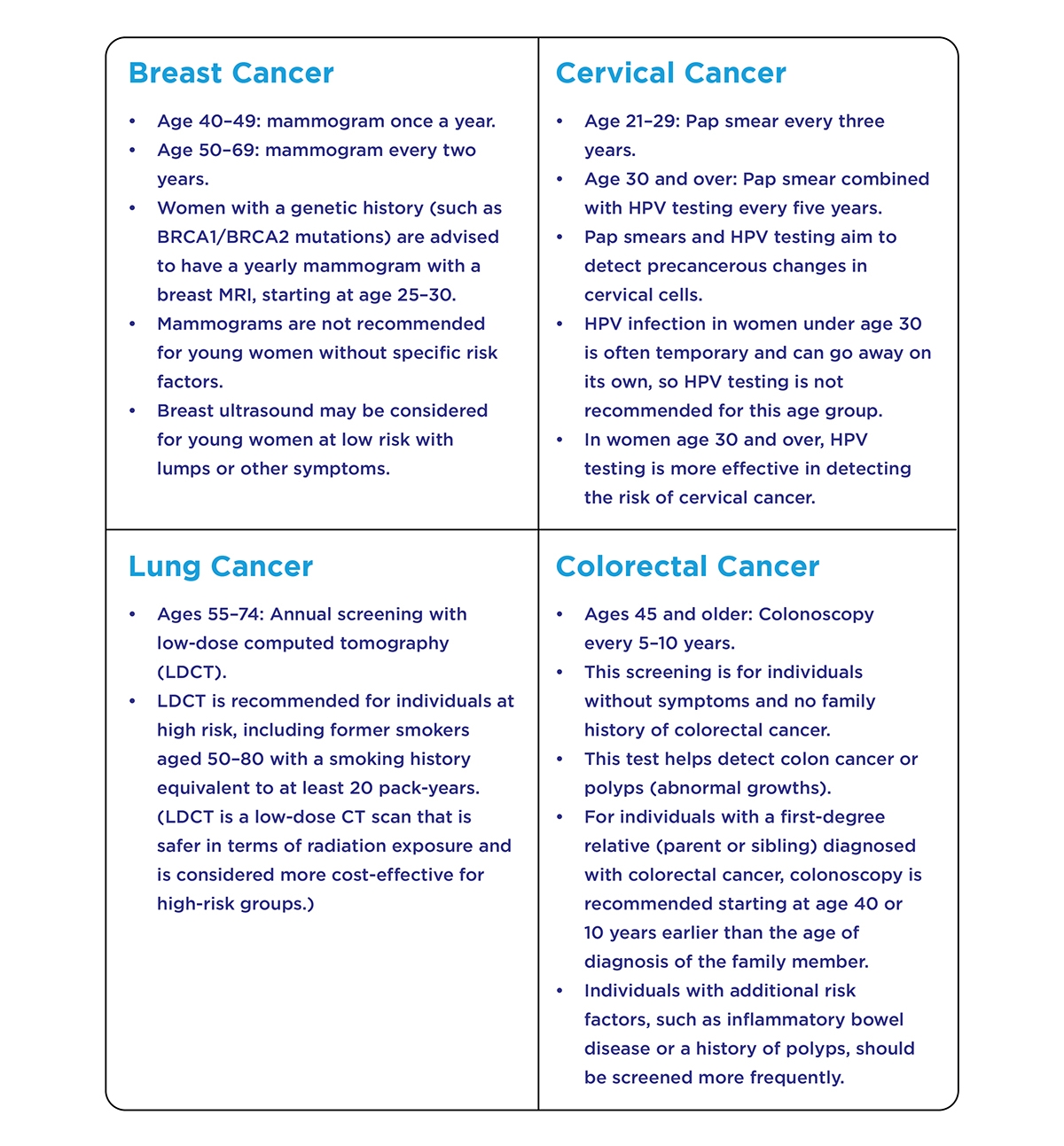Early Detection is Protection: Get Screened Now

The word "cancer" often sounds scary. Many people immediately associate it with death or imagine high medical costs.
If cancer is detected early, the chance of recovery can be much higher, and the cost of treatment is more affordable. Unfortunately, many cases are only found until they have progressed to an advanced stage, making treatment more complex and less effective.
One way to improve early detection is to pay attention to any change in the body, no matter how small. In addition, regular checkups or screenings are a good preventive step.
Early detection increases the chances of cancer recovery

Early detection of cancer significantly increases the chances of successful treatment. Early detection includes two major components: diagnosis (downstaging) and screening.
- Early diagnosis focuses on recognizing and treating patients already showing symptoms as soon as possible.
- Screening is done on healthy individuals to detect cancer before any symptoms appear.
The good news is that some cancers can be detected early, before they develop or spread. Studies have shown that detecting cancer at an early stage makes it easier to treat and gives patients a much higher chance of recovery.
For example:
- Breast cancer that is found in the early stages has a survival rate of up to 99%, but when it is not seen until it is in the advanced stages, the rate drops to 28% (source: American Cancer Society).
- For colorectal cancer, the survival rate can be as high as 91% when it is detected in the early stages, compared to only 14% when it is not found until it is in the advanced stages.
Read more: Why Is There a Lump in My Breast.
8 critical steps to detect cancer early

1. Know your family medical history
Knowing if anyone in your family has had cancer can help you identify risk factors and take the right preventive steps.
2. Perform regular self-exams
Self-exams, especially of the breasts (in women) and testicles (in men), can help detect abnormalities or changes early.
3. Schedule regular cancer screenings
Screenings such as mammograms, Pap smears, colonoscopies, prostate-specific antigen (PSA) tests, and low-dose CT scans can detect cancer before it causes symptoms.
4. Be aware of changes in your body, no matter how minor
Look for symptoms including unusual lumps, persistent cough, changes in bowel habits, unexplained weight loss, or persistent fatigue.
5. Adopt a healthy lifestyle
Regular exercise, increasing consumption of fruits and vegetables, reducing foods high in sugar and saturated fat, and avoiding smoking and limiting alcohol consumption can help reduce cancer risk.
6. Protect yourself from excessive sun exposure
Reduce exposure to ultraviolet (UV) radiation by wearing protective clothing, applying sunscreen, and avoiding prolonged exposure to the sun.
7. Protect yourself with vaccinations
HPV and hepatitis B vaccines effectively prevent several types of cancers associated with these viral infections.
8. Regularly check your health with a doctor
Schedule regular medical appointments to monitor your health and immediately treat suspicious symptoms.
Screening guide

Maintaining health starts with small, timely steps. Early detection can make a big difference in dealing with cancer—the sooner it is discovered, the greater the chance of recovery.
Don't delay. Schedule your cancer screening at GWS Medika Clinic now, a health clinic in Jakarta. Our medical personnel are ready to assist you with safe, comfortable, and reliable services.



